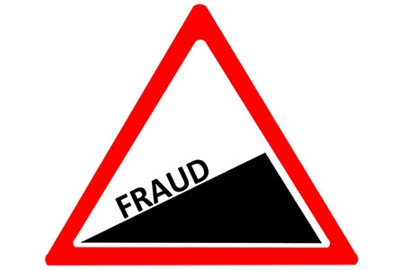In addition to its deeply serious health implications, COVID-19 is part of any and every discussion about business and society. From its dramatic impact on global economic engines and its spawning of a telecommuting revolution, to the growing anxiety brought on by social distancing's isolation, the pandemic dominates every waking hour.
And so it is with occupational fraud. The pandemic is creating conditions where occupational fraud can thrive. Anyone with the slightest understanding of fraud is familiar with the concept of the fraud triangle, which identifies pressure, opportunity, and rationalization as the key ingredients. The pandemic is fueling the first — pressure — in myriad ways, as its impact on economies threatens the financial well-being of millions of organizations and billions of workers globally.
The second, opportunity, could easily expand as organizations scramble to cut costs, even at the expense of effective controls. ACFE President and CEO Bruce Dorris describes the dangers behind this faulty thinking perfectly in the news release announcing the report, Coronavirus Pandemic Is a Perfect Storm for Fraud.
"Companies seeking to cut costs often target non-revenue-generating departments like compliance and internal audit. This is a mistake. Cutbacks to departments or initiatives that are integral to a comprehensive anti-fraud program only serve to leave organizations more vulnerable to the growing likelihood of fraud. As organizations make cuts in the attempt to operate with a leaner staff, they can find themselves caught in a perfect storm for fraud: Pressures motivating employee fraud are high at the same time that defenses intended to safeguard against fraud have been weakened."
ACFE is not alone in recognizing the growing threat of fraud and corruption created by the pandemic. The Council of Europe's Group of States Against Corruption (GRECO) has issued a similar warning.
In a report published April 15, GRECO President Marin Mrčela cautioned:
"As countries face undeniable emergencies, concentration of powers, derogations from fundamental rights and freedoms, and as large amounts of money are infused into the economy to alleviate the crisis (now and in the near future), corruption risks should not be underestimated. It is therefore most important that anti-corruption is streamlined in all COVID-19, and more generally, pandemic-related processes."
The ACFE Report to the Nations provides ample evidence of internal audit's critical role in fighting occupational fraud and corruption. Its examination of more than 2,500 fraud cases in 125 countries that occurred in 2019 tells us the following about internal audit:
- Internal audit uncovered the fraud in 15% of cases examined.
- Internal audit (74%) was the third most common control among survey respondents behind external audit (83%) and codes of conduct (81%).
- When internal audit is in place, median losses to occupational fraud were cut in half ($100,000 vs $200,000).
- When internal audit is in place, duration of frauds was cut in half (12 months vs. 24 months).
The report also provides significant data that internal auditors can mine to help them detect and deter fraud. This includes data on common methods of fraud, breakdowns on fraud occurrences by organization type, average loss per incident by industry, demographic profiles of fraudsters, common red flags to help identify wrongdoing, and more.
I urge every practitioner to download a copy of the report. Not only does it provide valuable information to help internal audit ferret out fraud, it also provides ample evidence of internal audit's value for stakeholders.
The COVID-19 pandemic has shined a bright light on how organizations respond to significant crisis, and all evidence suggests that internal audit is playing a significant, relevant, and valuable role. We must continue to do our very best work as we move forward. What's more, we must be vigilant and counsel against short-sighted efforts to save costs by eliminating or weakening effective and proven controls.
As always, I look forward to your comments.



